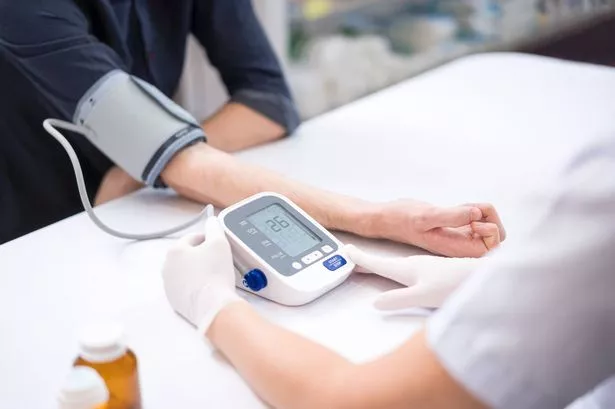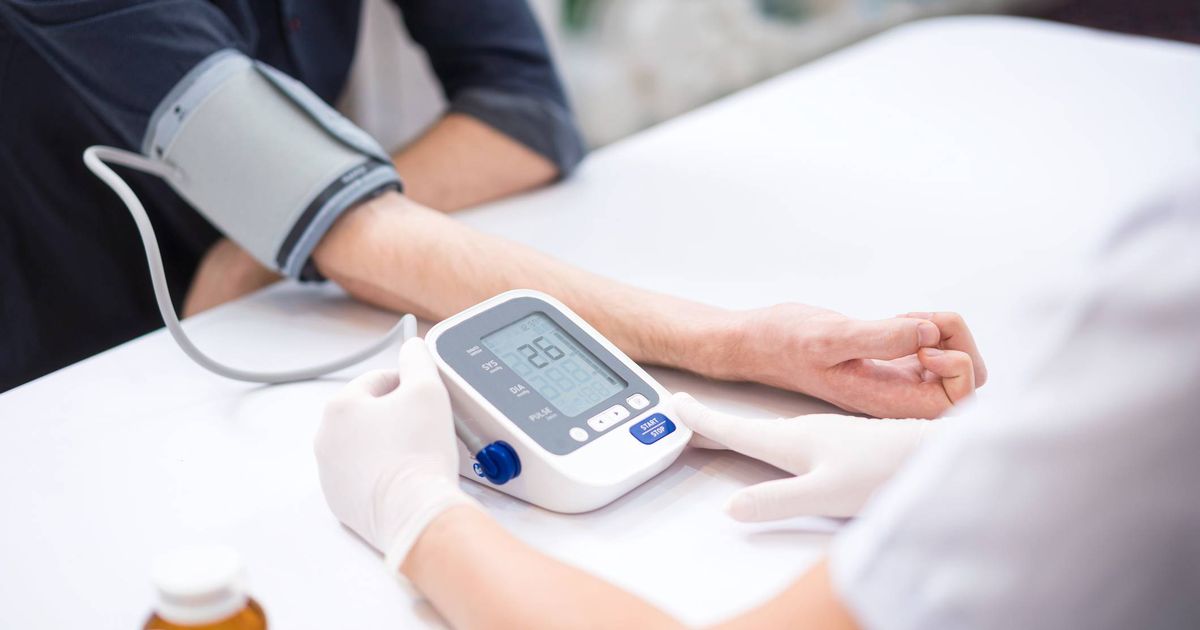The NHS has issued a warning for anyone taking the common high blood pressure medication The medicine is only available on prescription(Image: Getty)
The medicine is only available on prescription(Image: Getty)
The NHS has issued a cautionary note on its website for anyone taking a common medication for high blood pressure.
Known medically as hypertension, this condition affects around one in three adults in the UK, and many might not even be aware they have it.
Given that high blood pressure increases the risk of suffering a stroke, developing heart disease, or encountering kidney problems, it’s crucial to address it early.
Read more Omeprazole warning for anyone who takes tablet
This is where antihypertensive medications come into the picture.
As of 2025, amlodipine (a calcium channel blocker) and ramipril (an ACE inhibitor) are among the most commonly prescribed drugs in the UK.
Amlodipine alone accounts for more than 30 million prescriptions each year.
These medications are often taken for an extended period or even a lifetime, and are typically prescribed if a patient is unable to lower their blood pressure naturally through a healthy diet and lifestyle, or if the medication is needed due to genetic factors.
Taking amlodipine can help to prevent future heart disease, heart attacks and strokes. It’s also used to alleviate chest pain from heart disease (angina), reports the Mirror.
Amlodipine works on high blood pressure by relaxing and widening your blood vessels. This lowers your blood pressure and makes it easier for your heart to pump blood around your body.
When you suffer from angina, you usually feel chest pain as the arteries supplying your heart have grown rigid and constricted. Amlodipine works by boosting blood and oxygen circulation to your heart.
This medication is only available on prescription. It’s supplied as tablets or as a liquid for swallowing.
How to take amlodipine
The NHS states that amlodipine is usually taken once per day. You may select any time that suits you, though it’s advisable to maintain the same time daily.
Amlodipine tablets and liquid may be consumed with or without meals.
Ensure you swallow the tablets completely and accompany both tablets and liquid with a glass of water. Should you prefer, the tablets can be dissolved in water, though you must consume the entire mixture immediately.
What does the NHS caution users about?
While using this medication, patients must steer clear of one particular beverage.
An NHS website advisory states: “Do not take amlodipine with grapefruit juice. Having large amounts of grapefruit or grapefruit juice can increase how much amlodipine is in your body and make side effects worse. If you are affected, you may have to avoid eating grapefruit or drinking grapefruit juice while taking amlodipine.
“Having large amounts of grapefruit or grapefruit juice can increase the concentration of amlodipine in your body and make side effects worse. If you are affected, you may have to avoid eating grapefruit or drinking grapefruit juice while taking amlodipine.
“Tell your doctor if you have any increased side effects, such as feeling dizzy, flushing or getting headaches, after eating grapefruit or drinking grapefruit juice. Otherwise, you can eat and drink normally while taking amlodipine.”
Why can grapefruit and its juice be a problem?
You shouldn’t combine amlodipine with grapefruit. Grapefruit contains compounds that inhibit the CYP3A4 enzyme in your liver and intestines.
This enzyme assists in breaking down amlodipine.
When the medication isn’t properly broken down and the CYP3A4 enzyme becomes blocked, it means more amlodipine will remain in your system rather than being processed. This can lead to elevated levels of amlodipine in your blood, amplifying its effects and increasing the risk of severe side effects like perilously low blood pressure, dizziness, and fainting.
If you’re taking amlodipine, steer clear of grapefruit and grapefruit juice. Don’t hesitate to speak with your doctor or pharmacist if you have any queries about how food or beverages might interact with your medication.
Grapefruits are the primary fruit to avoid whilst on Amlodipine, which encompasses red, pink, white, and Blanco varieties. Seville oranges (commonly used in orange marmalade), pomelos, and tangelos (a cross between tangerines and grapefruits) might cause similar effects, so it’s recommended to avoid these fruits when taking amlodipine.
How long should you take amlodipine for?
The NHS states: “Usually, treatment with amlodipine is long-term, even for the rest of your life. Talk to your doctor if you want to stop taking amlodipine. Stopping may cause your blood pressure to rise, and this may increase your risk of heart attack and stroke.”
Should you be troubled by adverse effects, your GP might be able to prescribe an alternative medication.
In a crucial message to patients, the health service adds: “Take amlodipine even if you feel well, as you’ll still be getting the benefits of the medicine.”
What are the adverse reactions of amlodipine?
These frequent adverse reactions of amlodipine occur in more than one in 100 individuals.
They’re typically minor and only persist for a brief period.
There are measures you can take to help manage them.
Headaches
Rest and consume plenty of liquids.
Avoid drinking excessive amounts of alcohol.
Ask your chemist to suggest a painkiller.
Headaches should normally disappear after the initial week of taking amlodipine.
Speak to your GP if they persist longer than a week or are intense.
Feeling lightheaded
If amlodipine makes you feel lightheaded, cease what you’re doing and sit or lie down until you feel improved.
Do not drive, cycle or operate tools or machinery until the dizziness subsides.
Flushing
Consider reducing your intake of coffee, tea and alcohol. Keeping the room cool and using a fan might also be beneficial.
You could also try spritzing your face with cool water or sipping on cold or iced beverages. This side effect should dissipate after a few days.
If it persists or is causing you distress, get in touch with your GP.
A pounding heartbeat
If this occurs frequently post taking your medication, aim to take amlodipine when you’re able to sit down (or lie down) during the peak of the symptoms. It may be helpful to cut back on alcohol, smoking, caffeine, and large meals, as these can exacerbate the issue.
Consult your GP if you have a history of heart disease and the palpitations persist, worsen, or fail to improve, or if you’re concerned.
Swollen ankles
Elevate your legs whilst seated. Speak to your GP or pharmacist if the advice on coping doesn’t help and the side effects are bothersome or last for more than a few days.
How to boost your heart’s health?
You can enhance your heart’s health by making some crucial lifestyle modifications. These will also assist if you suffer from high blood pressure or angina:.
If you have heart failure, it’s advised that you receive the flu jab annually and the pneumococcal vaccine as recommended by your GP. Enquire about these jabs with your doctor.
They’re available at no cost on the NHS.
The COVID-19 jab is advised for the majority of individuals. Ensure you’ve received all the doses you’re entitled to.
If you believe you may belong to one of the high-risk groups, consult your GP.
